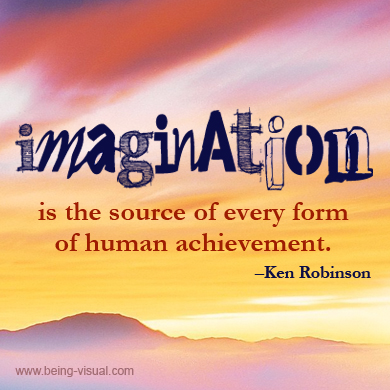1. Welcome/introductions/Course Criteria/Google classroom (hw9qx3)
2. Discuss;
Why Art?

"By awakening our imagination, art intensifies and complements our own experience. Art represents people, cultures, values, and perspectives on living, but it does much more. While bringing us pleasure, art teaches us. While reading or contemplating a painting our minds go elsewhere. We are taken on a journey into a world where form and meaning are intertwined.
Form matters and gives pleasure. How a work of art is organized — its
technique, its verbal or visual texture, its way of telling — gives
pleasure. So does the inextricable relation between form and content.
The form of imaginative art, as well as the form of well-written
non-fiction, organizes the mess (if not the chaos) of personal life as
well as that of external events. Form not only organizes and controls
art but also other bodies of knowledge within the humanities. Form
imposes structure that our own lives — as we move from moment to moment
through time — may lack.
Narrative — sequential telling — imposes form as it orders and gives
shape. Indeed, in the sense that each of us is continually giving shape
to the stories we tell to and about ourselves, there is continuity
between what we read and see and our own lives. Put another way, what we
read teaches us to find narratives within our own lives and hence helps
us make sense of who we are. Our seeing shapes and patterns in stories
and other kinds of art helps give interpretive order — in the form of a
narrative that we understand — to our lives. We live in our narratives,
our discourse, about our actions, thought, and feelings.
While there is always a gulf between imagined worlds and real ones, does
not the continuity between reading lives and reading texts depend on
our understanding reading as a means of sharpening our perceptions and
deepen our insights about ourselves? Reading is a process of cognition
that depends on actively organizing the phenomena of language both in
the moment of perception and in the fuller understanding that develops
retrospectively."
Daniel Schwartz, Huffington Post
Aesthetics/So Why is this Art?
http://schools.walkerart.org/swita/
- The nine key questions are:
- 1. What is art?
- 2. Should art be beautiful?
- 3. Does art have to tell a story?
- 4. Should art be realistic?
- 5. Which comes first, the art or the idea?
- 6. Does art express emotions?
- 7. Is art an object or is it a process?
- 8. What is the difference between art and popular culture?
- 9. Can art change society?
Questions in Aesthetics
(a partial list for the course and for your project):
- What is an aesthetic issue?
- Why think about art? Why not just experience it?
- What makes art different from nonart?
- Should we recognize a difference between fine art, commercial art, and craftwork?
- What do the arts have in common?
- Why does art matter?
- Are art and beauty essentially related?
- What is a symbol?
- How does art mean? How does the answer to this question differ with the different arts? (e.g., painting, music, dance).
- What's the status of aesthetic standards? Do they simply express individual or cultural tastes? Is there something objective about them?
- What's the nature of aesthetic properties? Are they in any sense "objective"? Or are they simply "in the eye (or ear) of the beholder"?
- How do the arts relate to spirituality and religion?
- Is there a connection between morality and art?
- How do the arts communicate emotions? How central is emotional communication to the nature of art?
- How do the arts relate to economic power and class structure?
- How closely is artistic expression and meaning tied to culture? To cultural ideas and philosophy? To cultural "forms of life"?
- What's the nature of aesthetic intelligence, and how does it relate to other sorts of intelligence?
- Can animals be artists?
- Is there any special connection between art and gender, or between art and sex or the erotic?
- How important is performance to art?
- Why aren't natural objects works of art? Or are they?
- Do artists reveal? Interpret? Express? All of the above